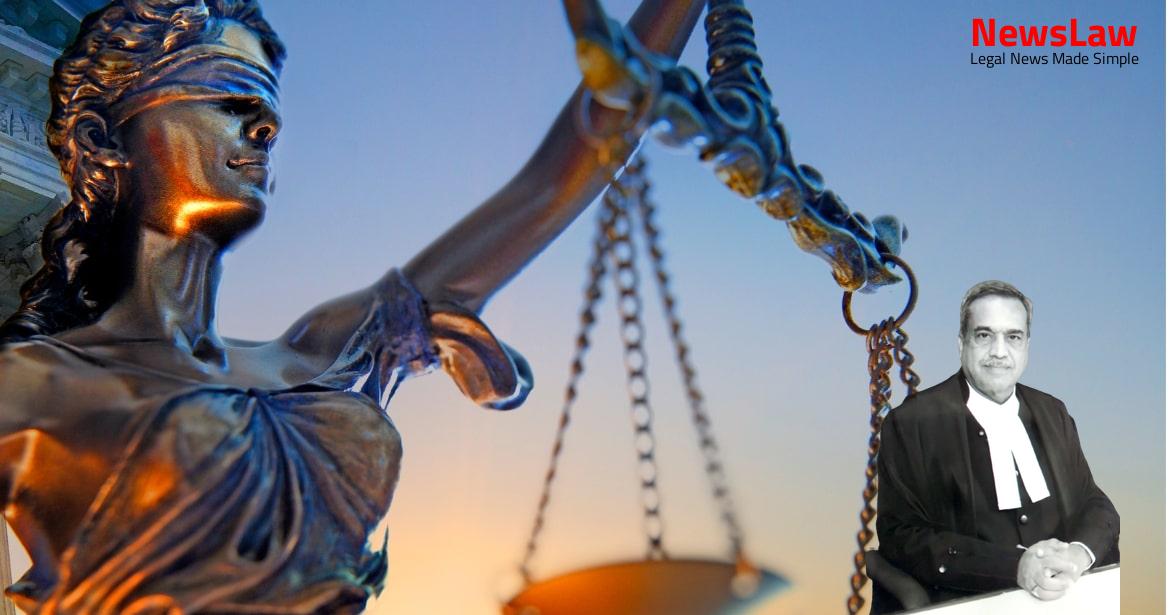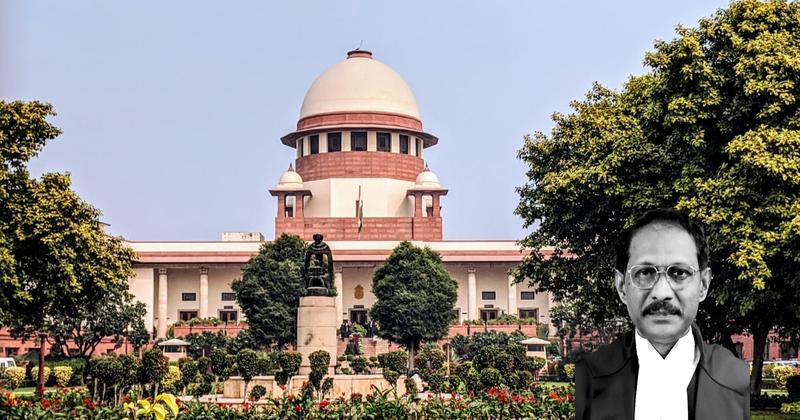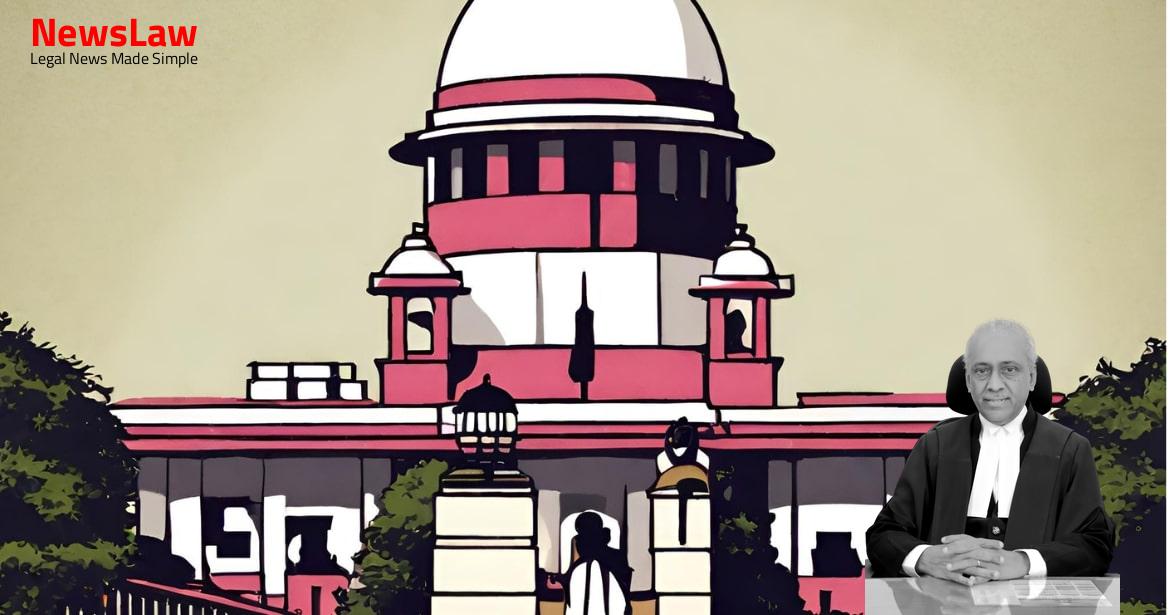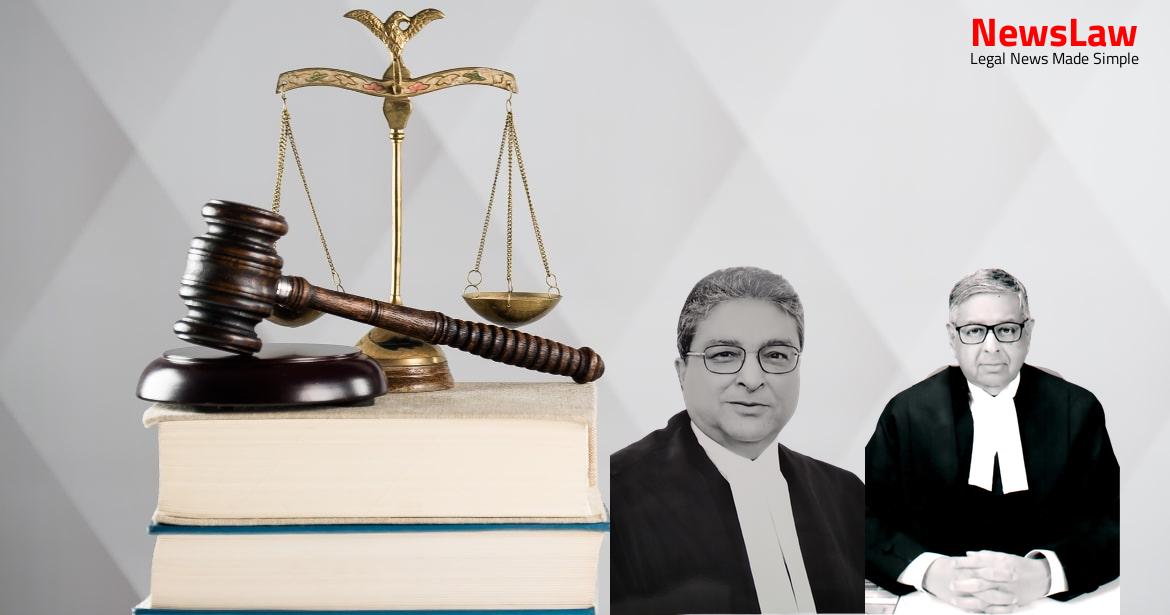In a recent legal case analysis, the court delves into the implications of NEET on institutional autonomy and the preservation of fundamental rights in the realm of education. The judgment scrutinizes the balance between government regulations and constitutional guarantees, shedding light on the significant considerations surrounding admission procedures in professional institutions. Stay tuned to explore how the court’s legal analysis navigates the complex landscape of educational rights and regulatory measures.
Facts
- Regulations providing for selection of candidates for MBBS Course and Post-graduate Course were amended by MCI and DCI.
- Changes were made in Clause 5 under Chapter II of the Regulations in 2017.
- NEET was introduced for admission to MBBS, Post-graduate, BDS, and MDS courses.
- Admissions that were made prior to the introduction of NEET were not interfered with.
- A prayer was made in Writ Petition (C) No.750 of 2016 to conduct centralized counseling for admission to all Graduate Medical and Dental Courses in the country.
- The validity of Maharasthra Unaided Private Professional Educational Institution (Regulation of Admissions & Fees) Act, 2015 applying to Unaided Private Minority Professional Educational Institutions was challenged.
- The matters filed in 2012-2013 were initially heard by a Bench of three Judges and decided on 18.7.2013.
- Regulations on Graduate Medical Education, 1997, were amended in 2017.
- Admission eligibility criteria for medical courses were prescribed through amended Clause 4.
- Provisions under question cannot take away the rights guaranteed under Articles 19(1)(g) and 30
- Rights guaranteed under Articles 25, 26, and 29(1) of the Constitution of India cannot be overridden
Also Read: Legal Analysis on Shareholding and Nomination Rights
Arguments
- Institutions argue that NEET infringes upon their fundamental rights to establish and administer educational institutions of their choice.
- Institutions claim to have fair and transparent admission procedures that pass the triple test of fairness, transparency, and non-exploitation.
- Petitioners emphasize their fundamental right under Article 30 of the Constitution to admit students of their own choice.
- It is argued that State restrictions on admission criteria, such as NEET, cannot override institutional autonomy and established admission processes.
- Judgement points out that NEET is a departure from the traditional admission methods followed by various professional institutions in India and globally.
- Institutions stress on the importance of autonomy in admission procedures to maintain quality and reputation.
- The doctrine of limited Government is cited to highlight the importance of autonomy in educational institution admissions.
- Institutions refer to successful admission processes in prestigious institutions like IITs, NITs, and IIMs to support their argument.
- Petitioners contend that the imposition of NEET violates the test of proportionality.
- Claim is made that the amendment through the introduction of NEET cannot diminish the fundamental rights guaranteed to minorities under the Constitution.
Also Read: Legal Analysis of Change in Law Compensation in Power Purchase Agreements
Analysis
- Selection principles in medical colleges are eligibility, suitability, and distributive justice.
- Regulatory measures by the Government, MCI, and DCI are in the national interest and not a violation of fundamental rights.
- The provisions uphold the doctrine of proportionality as seen in Modern Dental College and Research Centre case.
- NEET safeguards merit interests and prevents malpractices in admissions.
- Private institutions are still accused of ignoring merit and facing legal challenges.
- Minority institutions must adhere to regulations for affiliation and recognition applied to all.
- NEET must be the basis for admissions in both minority and private institutions.
- Balancing rights is essential in the context of national interest and public welfare.
- Measures to ensure transparency in institutional administration are crucial.
- Regulatory framework by MCI/DCI is necessary for maintaining standards and equity in admissions.
- The introduction of NEET aims to eliminate problems in the medical education system.
- Admissions for post-graduate examinations post-NEET introduction have raised concerns regarding Article 30 rights.
- Prescription of NEET aligns with improving medical education and public health as per constitutional directives.
- Reasonable regulatory measures can be imposed without infringing on institutions’ rights under Article 30.
- Uniform entrance examinations like NEET are essential for improving educational standards.
- Regulatory measures are intended to ensure the proper functioning of institutions and achieve the objectives of centralized examinations.
- In T.M.A. Pai Foundation (supra), the Court held that unaided minority institutions have the right to admit students, but the merit may be determined by common entrance test.
- The government can frame regulations that are in the national interest and to serve the interest in standards of education.
- Regulations for ensuring educational standards and maintaining excellence in professional institutions can be provided.
- The regulations are necessary to prevent exploitation, profiteering, and commercialization of education.
- The regulatory measures ensure fairness in the selection, recognition of merit, and the interests of the students.
- The states have the power to regulate the management and administration of educational institutions in the interest of educational need and discipline.
- Educational institutions must comply with the conditions of recognition, ensuring that they do not whittle down the rights guaranteed under Article 30 of the Constitution.
- In Modern Dental College and Research Centre (supra), it was observed that fair, transparent, and non-exploitative admission procedures are essential.
- Regulations which restrict exploitation and ensure the welfare of students and teachers should be implemented.
- Proper academic standards and conditions of eligibility can be prescribed by regulatory bodies for professional education, such as in the matter of selection and appointment of teachers.
- The regulations aim at achieving a proper purpose and facilitating education rather than impeding it.
- Introduction of NEET does not affect the 50% State quota seats in PG medicine courses, allowing for institutional reservation after the enforcement of NEET.
- Regulatory measures like prescribing NEET aim to maintain the standard of education and prevent maladministration.
- NEET is intended to eliminate various malpractices and bring back the charitable character of education.
- The regulatory measures do not impede the rights of religious or linguistic minority institutions to administer their own institutions.
- There is no violation of the rights of unaided/aided minorities under Articles 19(1)(g), 30, 25, 26, and 29(1) of the Constitution of India by prescribing NEET for admissions in medical and dental courses.
Also Read: Fair Investigation in Criminal Cases: Legal Analysis
Decision
- Provisions of the Act and regulation are not ultra vires
- No infringement on rights guaranteed under the Constitution of India
- The Constitution’s Article 30(1) read with Articles 19(1)(g), 14, 25, 26, and 29(1) not violated
- Transferred cases, appeal, and writ petitions disposed of
Case Title: CHRISTIAN MEDICAL COLLEGE VELLORE Vs. UNION OF INDIA (2020 INSC 374)
Case Number: T.C.(C) No.-000098-000098 / 2012



